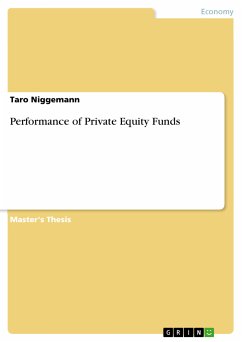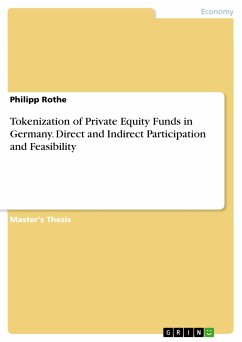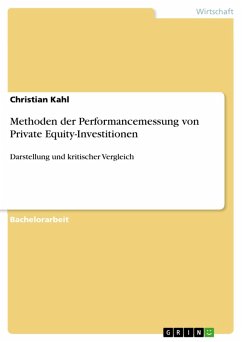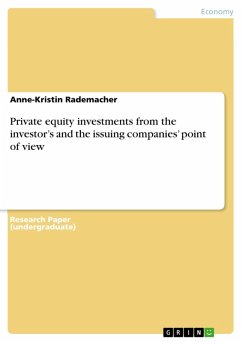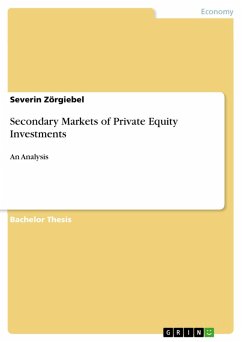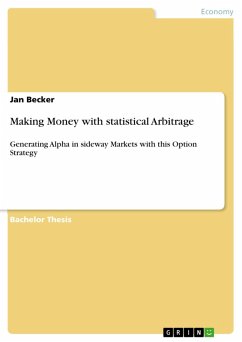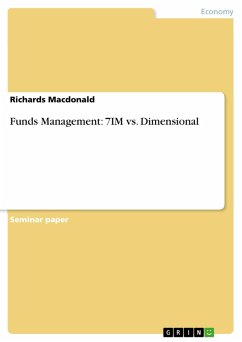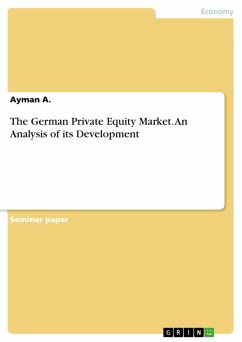Master's Thesis from the year 2005 in the subject Business economics - Investment and Finance, grade: 1.0, Otto Beisheim School of Management Vallendar, course: Doppeldiplomprogramm WHU Koblenz / EM Lyon, language: English, abstract: Private equity is currently replacing hedge funds as the most observed asset class. And while mutual funds experience a decline of assets under management, buyout funds break all records as far as fund raising is concerned. The attractiveness of buyout funds among investors is often attributed to superior returns and to an allegedly lower correlation with other asset classes. However, buyout fund returns also show superior volatility. In addition to that risk factor, investors must face liquidity and transparency risk. It is common agreement that investors are compensated for the elevated risk through a return premium. This and the cited lower correlation prompt more and more investors to add private equity into their portfolios. The wide-spread opinion of superior private equity performance is backed by several studies. But the analysis of these studies reveal that a number of them employ methodologies which are disapproved of by experts on theoretical private equity performance measurement. Furthermore, some have a one-sided notion of financial performance. Benchmarking, risk and correlation data which are crucial for an overall performance assessment often lack. The analysis of a series of technically appropriate, objective studies shows that private equity has historically outperformed public equity with regard to returns, in Europe more than in the United States (US). What remains unsolved is to which extent this return premium rewards the inherent, additional risk of private equity investments. And what is more certain: the prevalent view on correlation seems to be wrong. Empirical evidence and qualitative analysis speak for high correlation between private equity and the major asset classes. The most important driver for individual fund performance appears to be the quality of fund management. Thereby, specialized teams outperform others. Moreover, specialized funds provide investors better opportunity to diversify their private equity portfolio. Fundraising and investment conditions for private equity funds in France and Germany are favorable, but the accomplishment of superior performance will become harder in the future. The rules of the private equity business are changing as operating leverage has replaced financial leverage as the essential value driver.
Dieser Download kann aus rechtlichen Gründen nur mit Rechnungsadresse in A, B, BG, CY, CZ, D, DK, EW, E, FIN, F, GR, HR, H, IRL, I, LT, L, LR, M, NL, PL, P, R, S, SLO, SK ausgeliefert werden.

